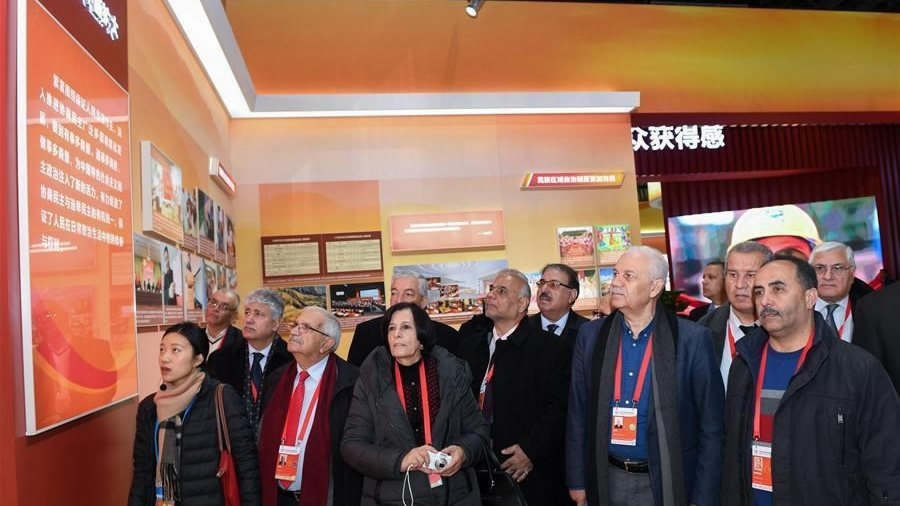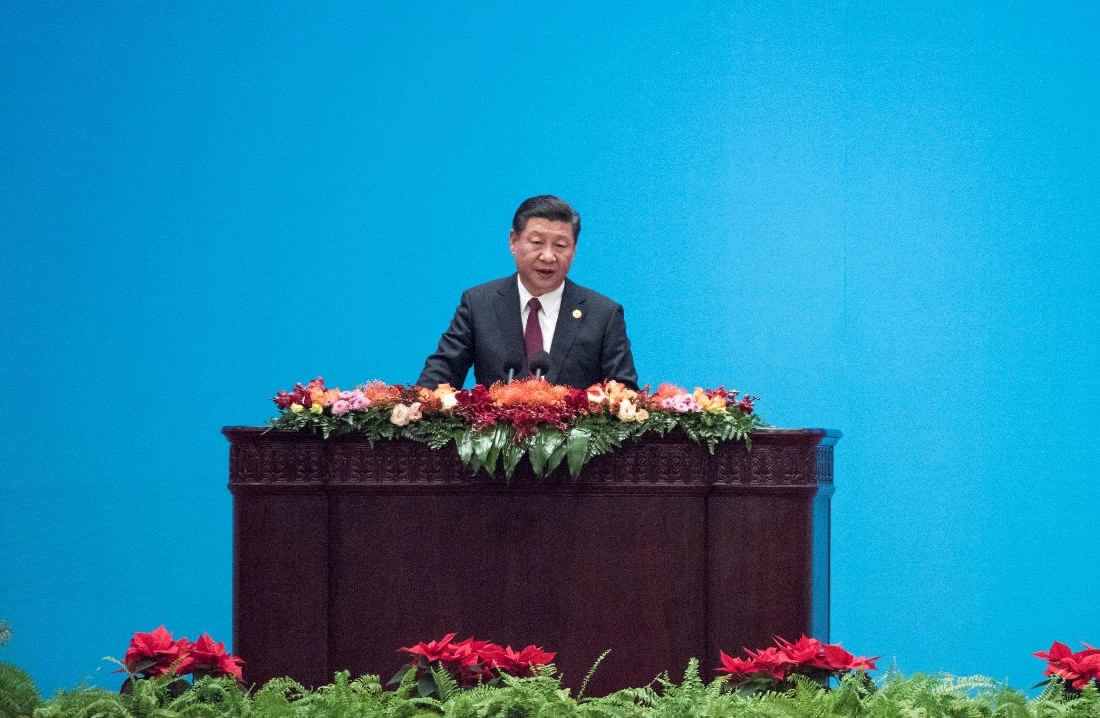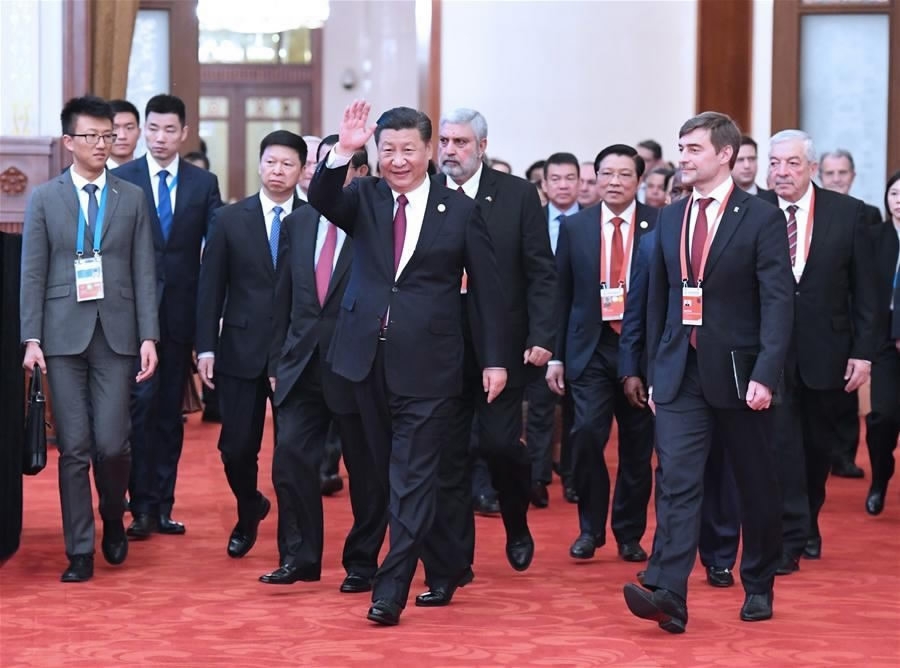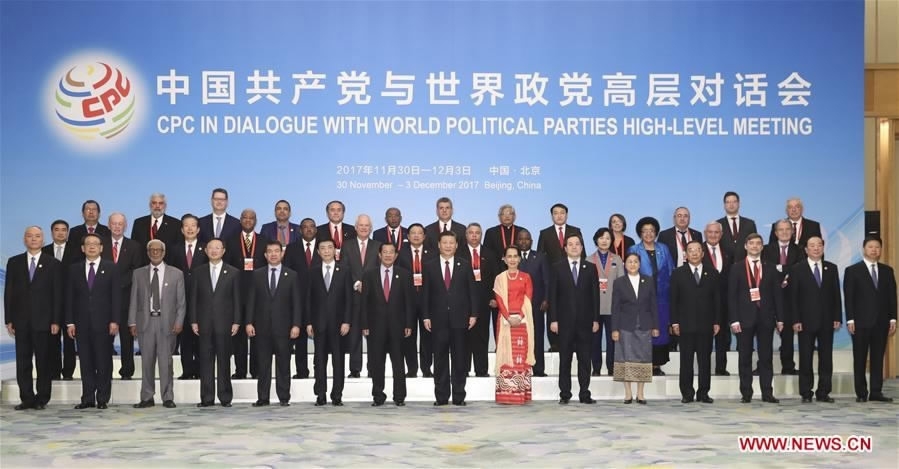
Opinions
12:48, 05-Dec-2017
Opinion: Responsibility rather than power bridges CPC to world political parties
Guest commentary by Zhu Dandan

The Communist Party of China (CPC) held a World Political Party Dialogue from November 30 to December 3 in Beijing.
This was the first time for the world political parties of various types to get together in Beijing for a better understanding of China with a briefing on the recent 19th Party National Congress.
The conference theme was announced as, "Working Together Towards a Community with a Shared Future for Humanity and a Better World: Responsibilities of Political Parties."

Chinese President Xi Jinping speaks at the opening ceremony of the CPC in Dialogue with World Political Parties High-level Meeting, at the Great Hall of the People in Beijing, China, December 1, 2017. /Reuters
Chinese President Xi Jinping speaks at the opening ceremony of the CPC in Dialogue with World Political Parties High-level Meeting, at the Great Hall of the People in Beijing, China, December 1, 2017. /Reuters
"Where you stand depends on where you sit" is an aphorism to describe the determinants of people's decisions. Who's number one? Who's gaining on the leader? And who's falling down from the top?
When making such rankings, we see an international system of competitors, with winners and losers in an ancient contest for supremacy. Within this framework of perception, we tend to look most closely at the shifting rankings at the very top of the international hierarchy of power - at the rivalry and struggle among the "great powers".
Over the past five centuries, each global war has led to the emergence of a hegemony, namely a preponderant state capable of dominating the conduct of international political and economic relations. How about change a perspective and view the great powers and world political players, by virtue of the amount of resources they command, as actors who have special rights and special responsibilities?

/Xinhua Photo
/Xinhua Photo
The theme of the conference suggests that the CPC is calling on the representatives of all the parties to seek their common ground for the sake of the international community as a whole while holding back differences.
And the key word to bridge the gap between the CPC and the world political parties, is not power, but responsibility.
Building a community with a shared future for mankind, as proposed by Xi Jinping, the party's top leader and also Chairman of the State, is to connect the prospects and destiny of every nation closely together, share weal and woe, and turn planet Earth into a harmonious community.
In considering international relations should be directed to the way of building a safe world free of fear, Xi further presented how security should be defined, that "a country cannot gain security at the cost of others".
All in all, Xi and the party are sending positive signals to the world: peace and all-round prosperity is worth striving for, with a commonly held image of that particular goal, the international society will have both motivation and direction for a better future.

Xinhua Photo
Xinhua Photo
Furthermore, Xi and the party combine the grand vision of the “building a community with a shared future for mankind” with specific commitments of resources and financing, making the Belt and Road Initiative (BRI) a well-functioning cooperation platform for countries to realize their common development.
It is the international political actors' choice whether or to what extent they are going to involve in bilateral or multilateral cooperative projects on the platform provided by BRI. The CPC and its leadership, nevertheless, are clearly aware of their responsibilities and duties to conduct extensive consultation, not only with the Chinese society but also with the international society, to build good will and credibility for the road-map they laid out for China by 2050.
Rather than fear the future and view world politics in a negative way, we should welcome its opportunities as we strive to build a more peaceful and just world.
(The author is Associate Professor, China Foreign Affairs University; Researcher, Collaborative Innovation Center for Territorial Sovereignty and Maritime Rights (CICTSMR). The article reflects the author’s opinion, not necessarily the views of CGTN.)

SITEMAP
Copyright © 2018 CGTN. Beijing ICP prepared NO.16065310-3
Copyright © 2018 CGTN. Beijing ICP prepared NO.16065310-3